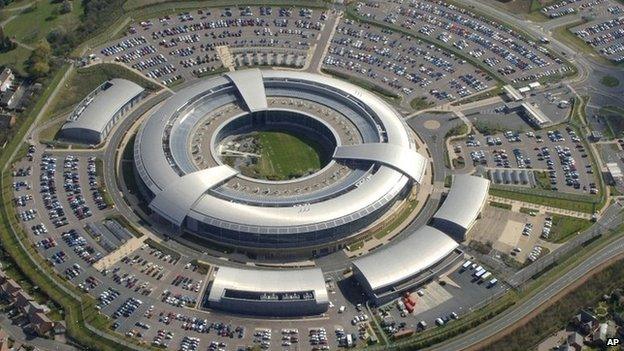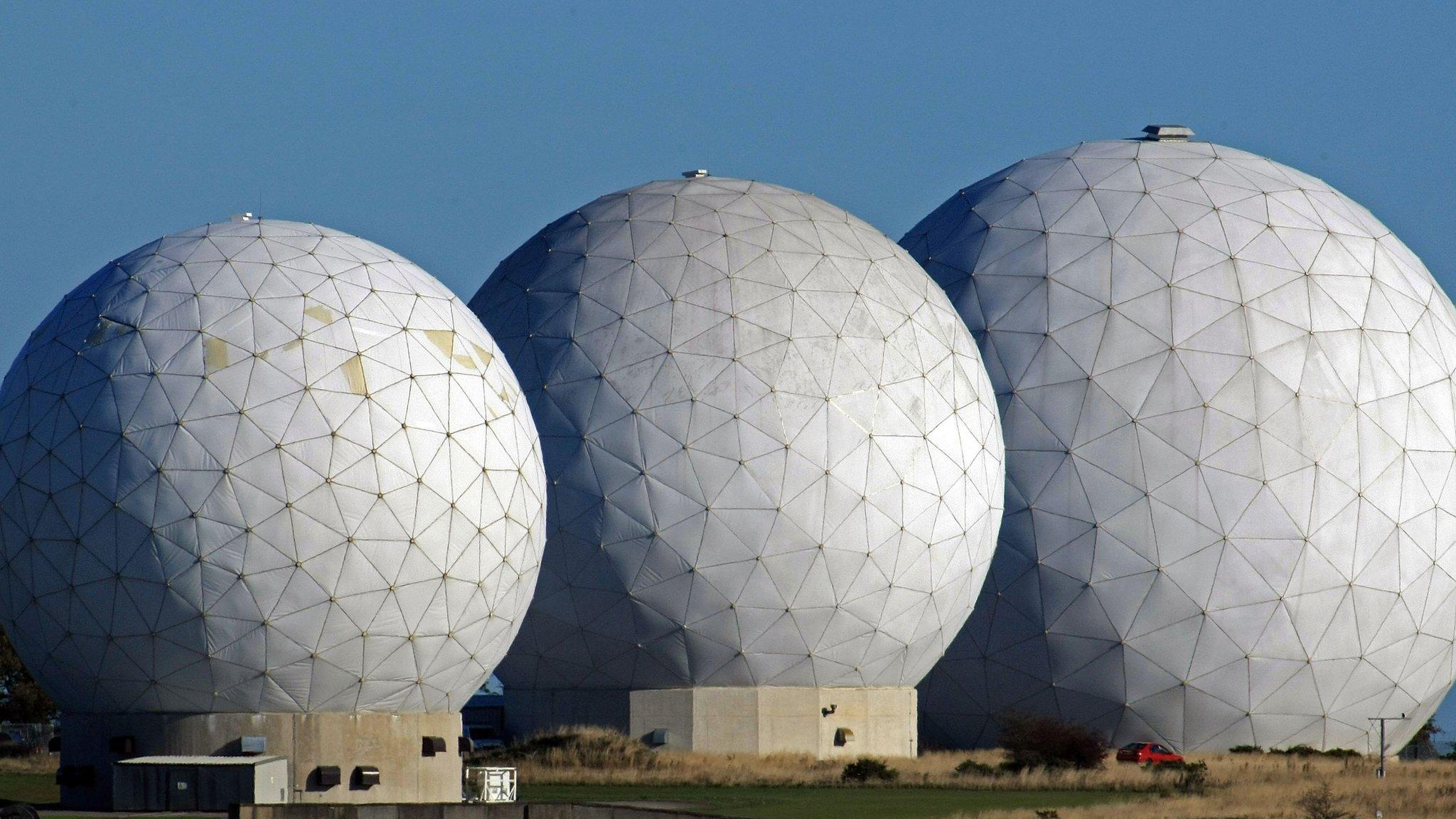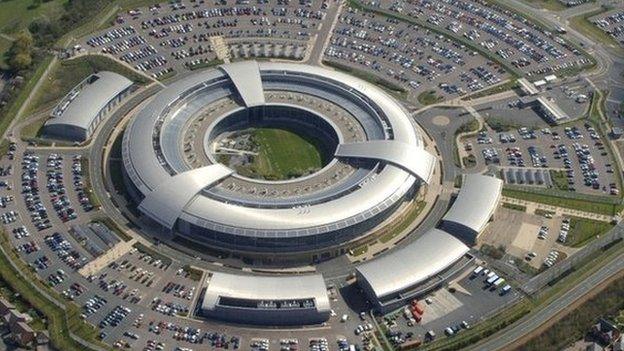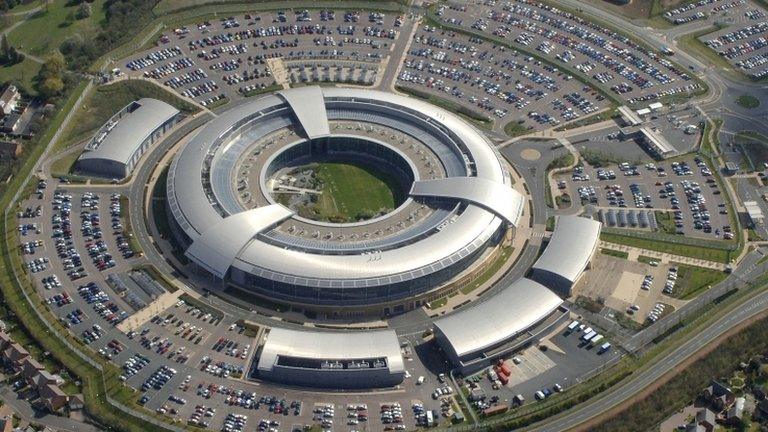Amnesty calls for GCHQ spying inquiry
- Published

GCHQ carries out monitoring for the British government
Campaign group Amnesty International has called for an independent inquiry after it was confirmed it was spied on by British surveillance agency GCHQ.
It said it was "outrageous" that human rights bodies were being monitored.
It came after the Investigatory Powers Tribunal (IPT) informed Amnesty that GCHQ had breached rules by keeping data intercepted from it for too long - although it had been collected legally.
The IPT was revising an earlier ruling that had failed to name Amnesty.
The tribunal had said in June that GCHQ failed to delete data intercepted from two other rights groups on time.
But it confirmed on Thursday that it was mistaken, and that one of the groups was Amnesty.
In a letter to the claimants in the case, external, IPT president Sir Michael Burton said: "The Tribunal wishes to apologise for and correct an error in its Determination of 22 June 2015."
Communication interception
The original action was brought by non-governmental organisations (NGOs) including Liberty, Privacy International, American Civil Liberties Union, Amnesty and Bytes For All - who accused the intelligence agencies of intercepting their communications.
In most of the cases there was no determination given - implying the bodies were not spied on, or if they were no rules were breached.
But the IPT ruled, external that GCHQ had not followed proper internal procedures in the cases of the Egyptian Initiative for Personal Rights and South Africa-based The Legal Resources Centre.
The tribunal has now made it clear that it was Amnesty and not the Egyptian organisation that had been spied on.
'Denials and subterfuge'
Amnesty secretary general Salil Shetty said: "It's outrageous that what has been often presented as being the domain of despotic rulers has been done on British soil, by the British government.
"How can we be expected to carry out our crucial work around the world if human rights defenders and victims of abuse can now credibly believe their confidential correspondence with us is likely to end up in the hands of governments?
"After 18 months of litigation and all the denials and subterfuge that entailed, we now have confirmation that we were in fact subjected to UK government mass surveillance.
"The revelation that the UK government has been spying on Amnesty International highlights the gross inadequacies in the UK's surveillance legislation."
He continued: "If they hadn't stored our communications for longer than they were allowed to, we would never even have known. What's worse, this would have been considered perfectly lawful."
At the time of the original judgement the government said it welcomed "the IPT's confirmation that any interception by GCHQ in these cases was undertaken lawfully and proportionately".
- Published22 June 2015

- Published6 February 2015

- Published5 December 2014
